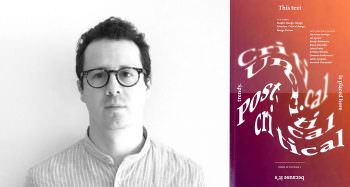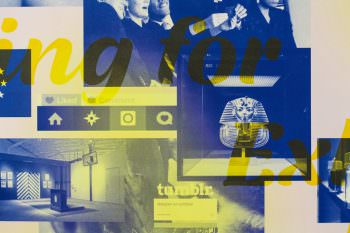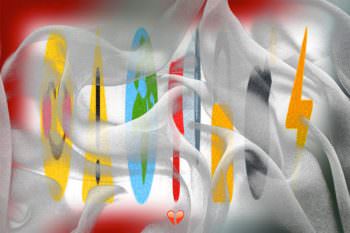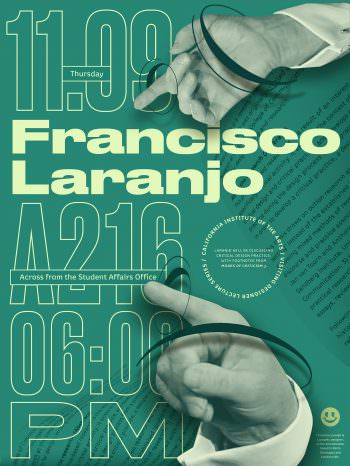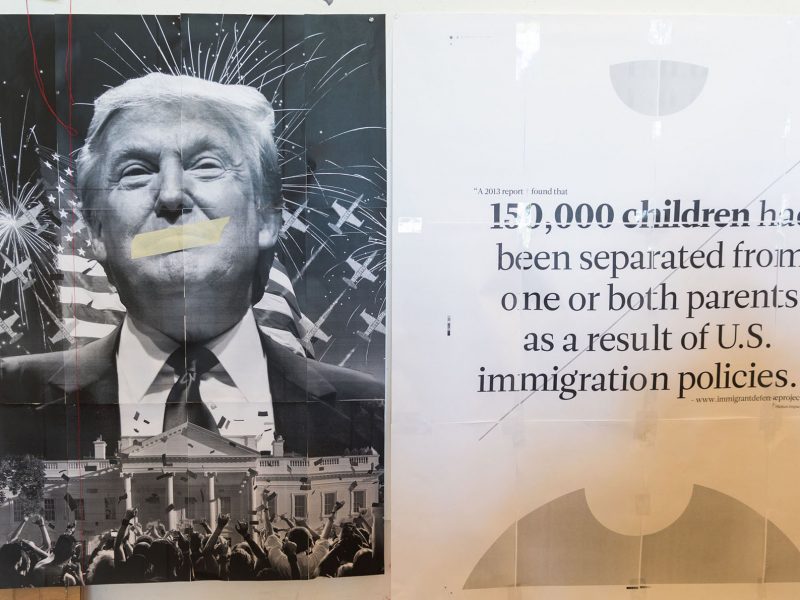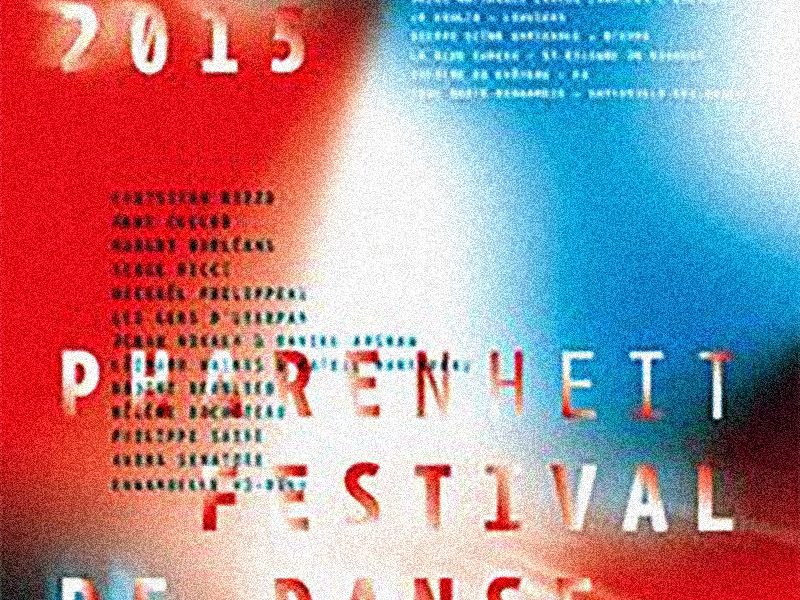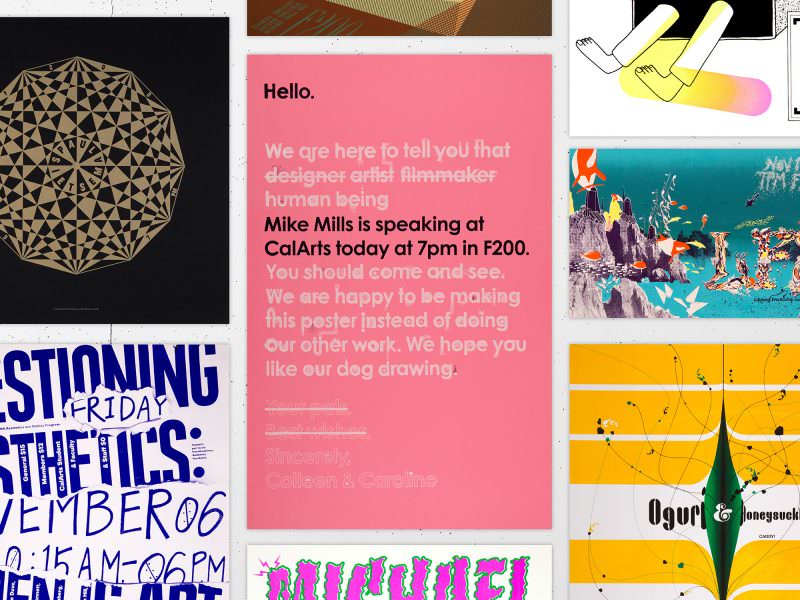Francisco Laranjo, a graphic designer, writer, and educator based in Porto (Portugal) and London (UK) will be visiting CalArts this Thursday, November 9th to speak about his critical design practice and contemporary design criticism. Laranjo’s writings have been published in Design Observer, Eye, Creative Review, Grafik, and Público, among others. He is co-director of The Shared Institute, a research centre for design and radical pedagogy, and runs a platform for design criticism and writings at modesofcriticism.org.
A particularly poignant article from December 2016 that has generated a great deal of conversation on campus is a piece of critical fiction titled “Automated Graphic Design”. Laranjo imagines a not-so-distant future in which the Adobe monopoly has only become more insidious and graphic design more automated. Laranjo asks designers, thinkers, and educators to question the future of graphic design as a profession, and the ways in which we participate in the systems of power that may eventually lead to our industry’s destruction.
Laranjo is certainly not alone in imagining automated dystopian futures for creative industries (see The New Yorker Magazine’s cover story from Oct. 23, 2017), he prods us to question how we, as designers, play into the systems that determine the future of the industry. Similarly, Laranjo investigates contemporary design criticism at large, through his own writing on the site and commissioned articles from other thinkers and designers working in the field.
By asking us to question the systemic flaws inherent in our field, Laranjo seems to present an optimistic view of the future of design. Many of his essays have a call to action (see Laranjo’s 2016 piece Design should be Decolonised), and propose solutions for the future of design and how design criticism can function in 2017 and beyond.
